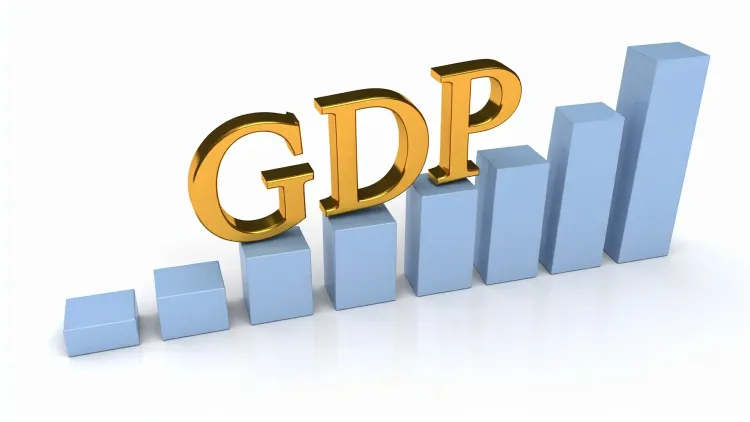What is the Asian Development Bank's forecast for India's growth in 2025 and 2026?

Synopsis
Key Takeaways
- India's growth forecast is 6.5% for 2025 and 2026.
- Public investment plays a crucial role in driving growth.
- Inflation is projected to ease to 1.7% this year.
- Manufacturing and construction sectors are performing well.
- Global trade uncertainties may impact future growth.
New Delhi, Sep 30 (NationPress) The Asian Development Bank (ADB) released a forecast indicating that India's economy is expected to grow by 6.5 percent in both 2025 (FY26) and 2026 (FY27). This comes as the ADB revised down its growth projections for developing Asia and the Pacific by 0.1 and 0.2 percentage points for this year and next year, respectively, due to a shifting global trade landscape influenced by tariffs and new trade agreements.
According to the ADB, India’s GDP saw a growth of 7.6 percent in the first half of 2025, supported by increased public capital spending which balanced out lower net exports and consumption, despite solid rural demand.
The report highlighted that industrial growth in India has been on the rise, particularly in manufacturing and construction, which have compensated for downturns in mining and utilities.
Manufacturing conditions in India and many ASEAN nations have improved. Furthermore, the services PMI in India remained robust, fueled by a surge in demand for travel and recreational services.
In addition, rice prices are expected to decline thanks to favorable weather and record harvests in India, which is recognized as the world’s leading rice exporter.
However, the higher tariffs imposed by the United States and ongoing trade uncertainties are anticipated to negatively impact growth in the region.
Inflation is projected to decrease to 1.7 percent this year as food and energy prices lower, followed by a slight increase to 2.1 percent next year as food prices stabilize.
As of August, India’s CPI inflation was recorded at 2.07 percent, significantly lower than the 3.7 percent from the previous year. Food prices have been on a downward trend for three months in a row, decreasing by 0.7 percent year-on-year, primarily due to lower prices for vegetables, pulses, and spices.
ADB Chief Economist Albert Park noted that the tariffs from the U.S. are at historically high levels and global trade uncertainty is substantial.
Park also mentioned, “While growth in developing Asia and the Pacific has shown resilience this year due to strong exports and domestic demand, the deteriorating external conditions are influencing the outlook. In light of the new global trade dynamics, it’s vital for governments to maintain sound macroeconomic management, promote openness, and encourage further regional integration.”
Forecasts for the People’s Republic of China (PRC) remain stable, with policy support expected to mitigate the effects of heightened tariffs and ongoing property market weaknesses. The PRC’s economy is anticipated to grow by 4.7 percent this year and 4.3 percent next year.
Countries in Southeast Asia are facing significant downgrades in growth forecasts due to diminished global demand and increased trade uncertainties. The growth rate for this subregion is now expected to be 4.3 percent for both 2025 and 2026, reflecting a reduction of 0.4 percentage points for each year compared to forecasts made in April.









